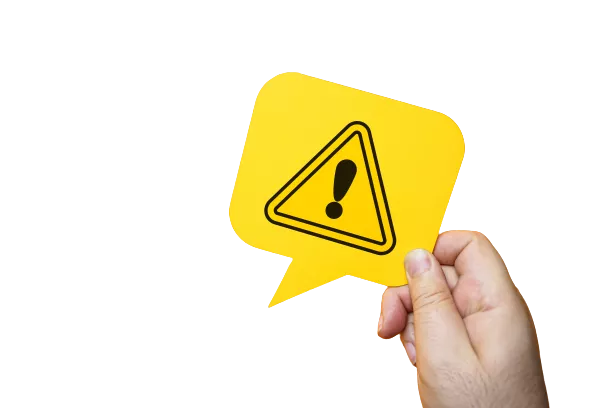Is Free Kratom Legit?
Simply put, no. Fake kratom is a real problem in the “free sample” space — and it’s crucial that you remain skeptical to any claims of free kratom powder.
No legitimate kratom business makes a habit of giving away products for free. Some reputable companies throw in free samples with large orders (see Kona Kratom), but any offer for free kratom on its own should raise an eyebrow. If a deal seems too good to be true, it probably is.
High-potency, high-quality kratom is very expensive, and any company willing to offer free samples is very likely not sourcing its product from a reputable place. Not only that, but the free samples likely aren’t being put through third-party testing to ensure potency or lack of contaminants.
Some free kratom offers are even worse. Some of the “free kratom” deals you see are scams that lure unwitting customers in with promises of free samples. Instead, the company pockets the money for “shipping” before vanishing. Other potential problems with these free kratom offers range from not worth it to dangerous. We’ll discuss some of the issues with free kratom samples below.
Related: What’s the Cheapest Kratom?
Free Kratom Often Contains Contaminants
Let’s start with the most dangerous case.
Some companies try to unload contaminated products by giving them away. These products could be contaminated with mold, bacteria, harmful chemicals, or heavy metals, and consuming them could make you sick. So why do companies do it?
One reason is to recoup the money they would otherwise lose by charging more for shipping while pretending the contaminated product is free. Recovering a few dollars by collecting elevated shipping costs is better than losing 100% of the money at the risk of bad publicity from disgruntled customers.
Another possibility is to give away contaminated kratom hoping some people won’t get sick and that they’ll place an actual order later. This method only works if the kratom isn’t so contaminated that most people won’t notice.
Some companies combine both methods, charging more for shipping and hoping some customers will have an enjoyable enough experience to buy its products. In any case, contaminated kratom is potentially dangerous and should be avoided entirely.
Free Kratom is Often Low Potency
Another tactic some unsavory kratom companies employ is offering low potency products under the guise of a free sample. Of course, the sample isn’t actually free, and you will pay more for shipping than you would for an actual order.
Some companies use this method to offload a bad batch from their supplier. Selling low potency kratom for a few dollars by pretending to give it away is preferable to damaging the company’s reputation by playing off weak kratom as regular strength.
Other companies may dilute its kratom powder or tincture by cutting it with inactive ingredients, effectively reducing its potency. Stretching the supply and running a free sample scam can net them more than selling the product outright, and fewer customers will complain or leave bad reviews because the product was “free.”
Free Kratom Usually Comes From Spammy Companies
An adage on the internet says that you’re the product if you can’t tell how a company is making money. This rule applies to every online business, including kratom companies. Some spammy vendors collect your personal information to sell it to advertising agencies and other companies, creating countless headaches and opening you up to identity theft and credit card scams.
This type of free kratom may be legitimate, although that’s still very unlikely. However, letting your information get into the wrong hands is not worth a few grams of kratom.
Kratom Through Free Trials Are Often Scams
Charging more for shipping while passing off a product as “free” is lousy, but some companies take it one step farther and never send the product, pocketing the entire cost of “shipping.”
These companies frequently change their names to avoid detection, and the most skilled scammers make it seem like they’re giving away free trials to drum up business for their new company. The best way to avoid these scams is not to let the promise of free kratom cloud your judgment. Remember that nothing is ever truly free.

What to Look for In Premium Kratom Products
Besides not giving away products for free, reputable kratom companies have a few other things in common. Here’s what to look for when buying premium kratom products.
Third-Party Lab Results
The most important thing to look for when scouting a new kratom company is third-party lab results. Reputable kratom vendors have their products independently tested for safety and purity and publish the results on their company’s website. Without these testing results, it’s impossible to know what you’re getting.
Look for lab reports on product listings or a dedicated lab results page. These reports should be clearly labeled and easy to digest. If they seem confusing or it’s hard to tell which reports correspond with which products, it could signify that the company is hiding something.
Detailed Sourcing Method
Another way to tell reputable kratom businesses from scammers is the presence of specific, detailed sourcing information. Companies with nothing to hide are proud to display their relationship with kratom suppliers, while shady businesses make vague, unverifiable statements about where their products come from.
Company Longevity & Reputation
Unfortunately, the kratom industry is plagued by people looking to exploit the unregulated market by selling low-quality, weak products. These companies change names frequently, so you should be wary of companies that don’t have any reviews and brand new companies.
When looking for vendor reviews, scan forums and external sites. Relying on a company’s internal reviews is risky since they may not be genuine reviews. Forums like Reddit and review aggregation sites are much more reliable and should be where you spend most of your time.
Company Information & Mission Statement
This point is similar to the previous one. Rarely will a scam company take the time and put in the effort to fabricate a convincing mission statement and background information.
Premium kratom companies want to forge connections with customers and provide ample information about their core ideals and background. A company website that doesn’t have information about what the company stands for or where it came from is a red flag.

Wrapping Up: Why Discounts Are Often Better Than “Free” Kratom Samples
There’s no such thing as a free lunch — or free kratom. Don’t be fooled by companies that promise to send you a free sample of kratom, no strings attached. These offers are almost always scams designed to steal your money or personal information and are never worth it. At best, you lose some money, but you could become sick or a victim of identity theft at worst.
Free kratom may not exist, but some companies, like Kona Kratom and Star Kratom, regularly offer free samples on orders over $50 or $60. Reputable companies also use discounts to encourage people to try new products, rewarding loyal customers for their patronage.

